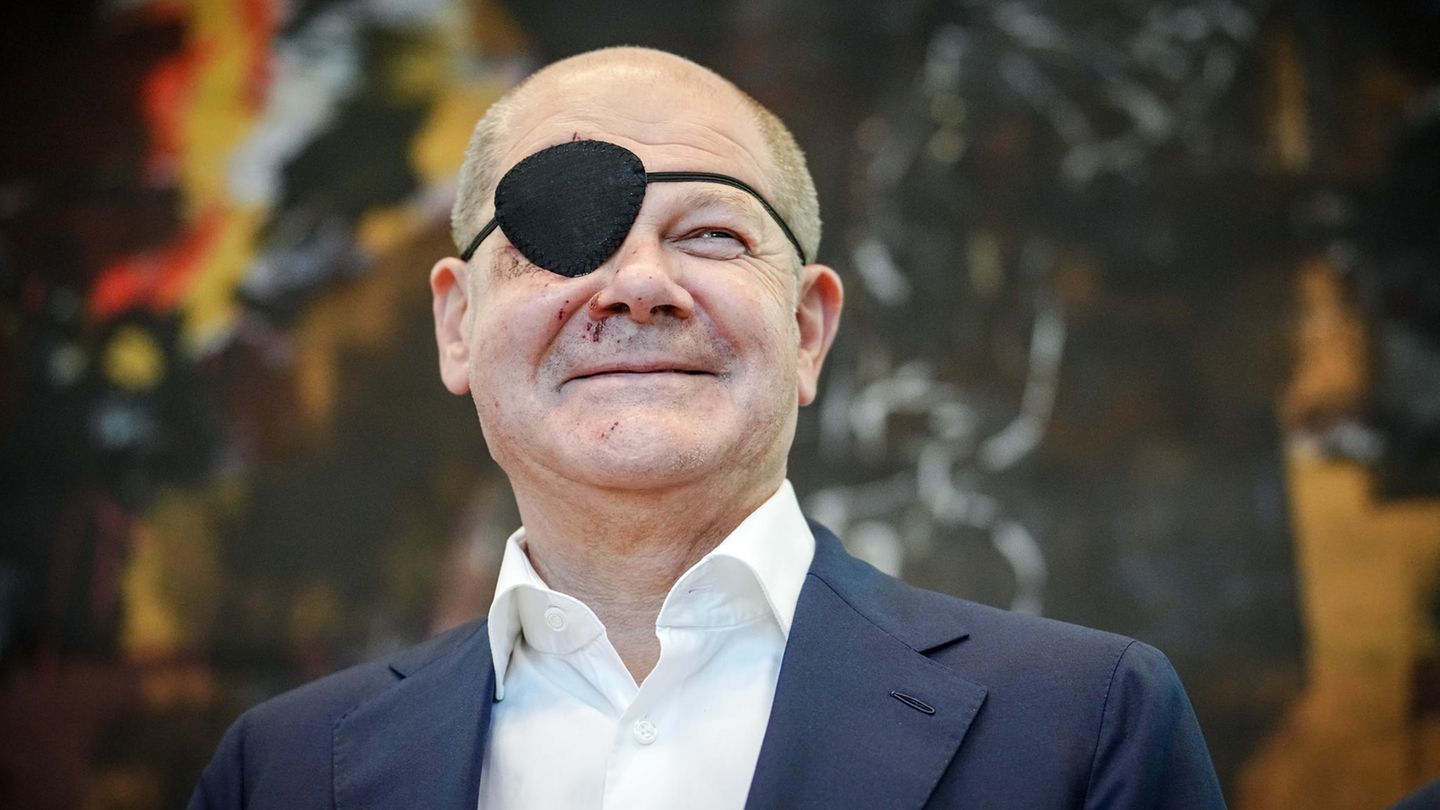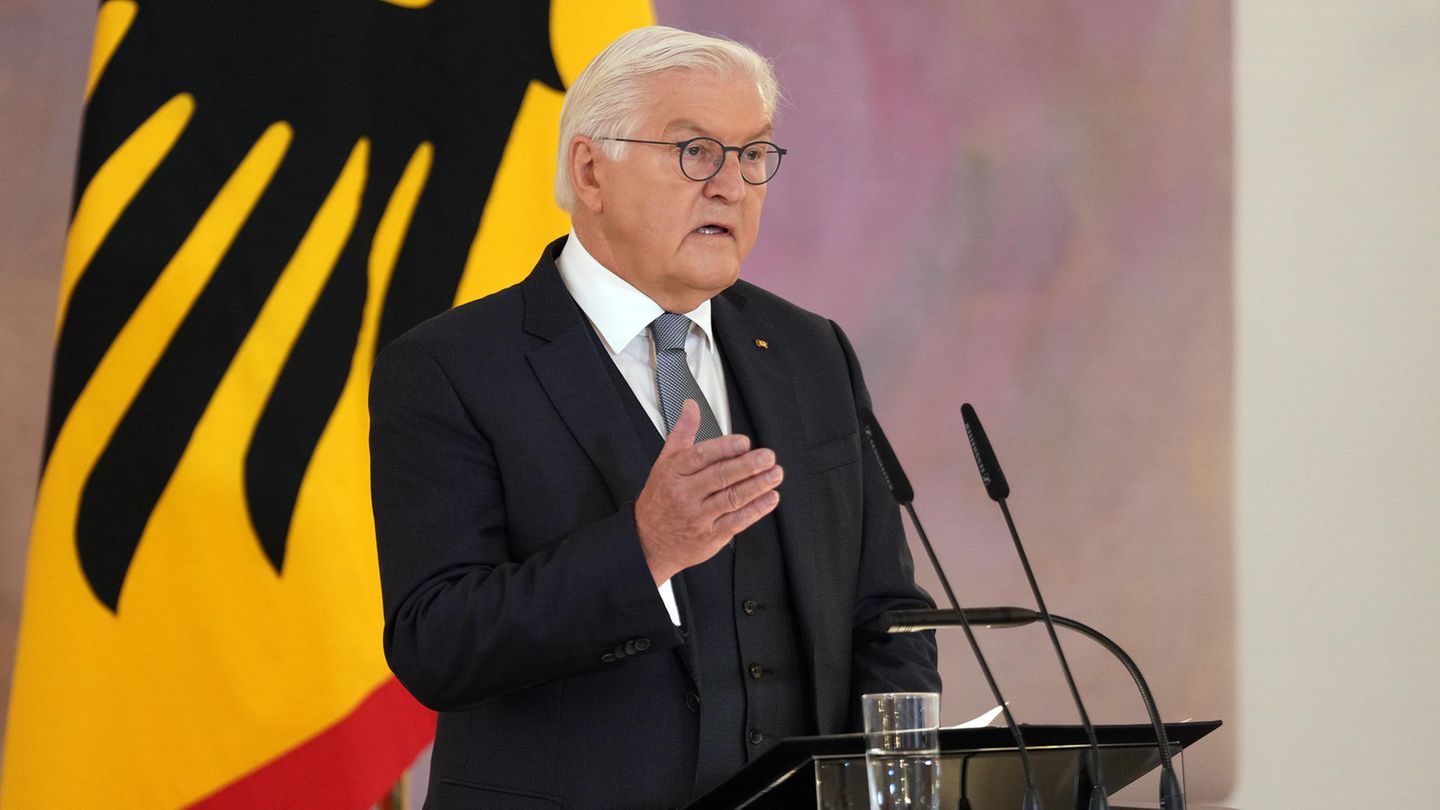Traffic light off
Federal President Steinmeier dissolves the Bundestag and calls new elections
Copy the current link
The parties are already preparing at full speed for February 23rd as the date of the federal election. But the Federal President has the last word. Now he has spoken.
After the traffic lights went out and Chancellor Olaf Scholz (SPD) lost his vote of confidence, Federal President Frank-Walter Steinmeier dissolved the German Bundestag. He announced this on Friday morning at Bellevue Palace in Berlin. He is setting new elections for February 23rd. In difficult times like now, stability requires an effective government and reliable majorities in parliament, he said.
That’s why I’m convinced that new elections are the right path for the good of our country.
Political stability is a valuable asset in Germany, the dissolution of the Bundestag before the end of the legislative period and early elections are the exceptional case, said Steinmeier. “According to the vote on the vote of confidence, the current government no longer has a majority, but in the discussions I could not see any majorities for a government with a different composition either.”
+++ Read the speech here in full: “Steinmeier warns against influence from Musks X” +++
The Basic Law has made provisions for this situation. The Bundestag will continue to work until a new Bundestag has been formed. “Our democracy works, even in times of transition.”
It was considered certain that he would follow Chancellor Scholz’s request to dissolve parliament. It was also considered almost certain that Steinmeier would announce February 23rd as the election date. The leaders of the SPD and Union factions had agreed on this day.
Scholz asked the Bundestag on December 16th for a vote of confidence after the traffic light coalition made up of the SPD, Greens and FDP broke up in November after only around three years. Scholz did not receive a majority for his motion – as he intended. He then asked Steinmeier to dissolve the Bundestag in order to clear the way for new elections.
The Federal President is in control of the process
According to Article 68 of the Basic Law, the Federal President can, at the suggestion of the Federal Chancellor, dissolve the Bundestag within 21 days if the latter loses the vote of confidence. Article 39 stipulates that the new election must then take place within 60 days.
Steinmeier only gives himself eleven days to make his decision and not the 21 days available to him. However, after the Bundestag’s decision on the vote of confidence, he first held discussions with the chairmen of the parliamentary groups and groups. So he wanted to find out whether there was still a way to achieve a stable political majority in the Bundestag. However, this is not in sight.
Immediately after the traffic light broke, Steinmeier announced the criteria he would use to make his decision: “Our country needs stable majorities and a government capable of acting. That will be my criteria for review.”
The most beautiful, weirdest and worst traffic light moments

© Kay Nietfeld / Picture Alliance
Back
Further
The fact that the Bundestag is dissolved prematurely is an absolutely exceptional case in the history of the Federal Republic. Scholz’s vote of confidence was only the sixth since 1949. In three cases, the electoral period ended prematurely. This affected Chancellors Willy Brandt (SPD) in 1972, Helmut Kohl (CDU) in 1982 and Gerhard Schröder (SPD) in 2005.
Schröder had already asked for a vote of confidence in 2001, but not in order to lose it. Rather, he wanted to get his partly recalcitrant red-green coalition behind him for the Bundeswehr’s participation in the fight against terrorism in Afghanistan.
Helmut Schmidt’s (SPD) vote of confidence in 1982 was similarly disciplinary, as he wanted to force the SPD/FDP coalition’s approval of his security and labor market policy. Both SPD chancellors won the vote of confidence and the Bundestag was not dissolved.
Note: This article has been updated several times to include further information.
AFP · DPA
rw
Source: Stern
I have been working in the news industry for over 6 years, first as a reporter and now as an editor. I have covered politics extensively, and my work has appeared in major newspapers and online news outlets around the world. In addition to my writing, I also contribute regularly to 24 Hours World.




